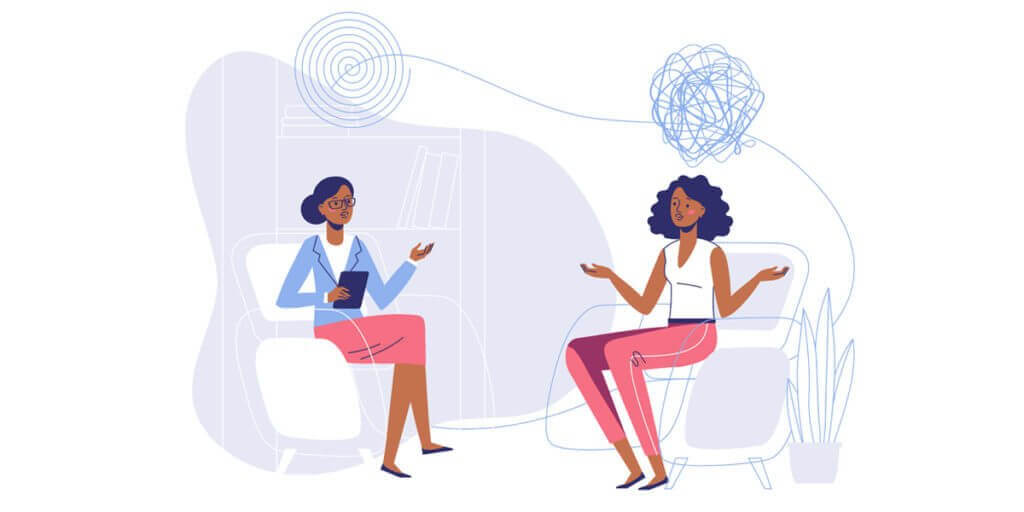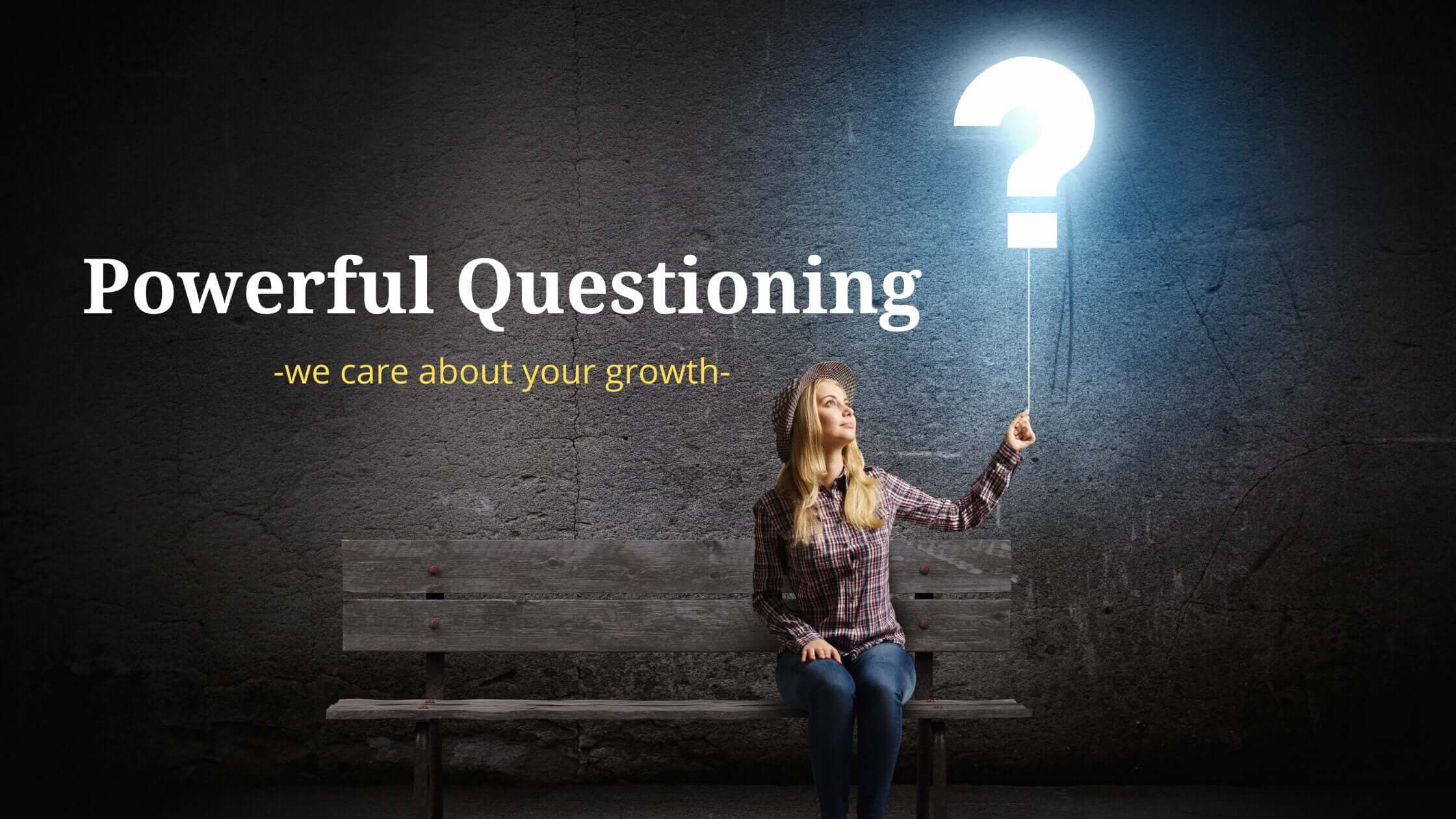Do your coaching sessions feel stuck in a rut?
Are your clients failing to achieve breakthroughs and reach their goals?
The answer might lie in the way you ask questions. Powerful questioning is a game-changer in the coaching world, and mastering this skill can transform your practice. This guide will equip you with everything you need to know to craft impactful questions that unlock your clients’ potential and propel them towards success.
What is Powerful Questioning and Why Does it Matter?
Standard questions lead to predictable answers, leaving clients feeling like they’re going through the motions. Powerful questioning, however, digs deeper. It involves using open-ended, thought-provoking inquiries designed to:
- Challenge limiting beliefs: Powerful questions push clients to re-examine assumptions holding them back.
- Spark self-discovery: By prompting clients to reflect on their thoughts and emotions, powerful questions guide them towards uncovering their own solutions.
- Boost accountability: The right questions can empower clients to take ownership of their choices and actions.
This approach is not about leading clients to preconceived answers but encouraging authentic exploration of their thoughts, emotions, and motivations.
Key Elements of Powerful Questioning:
- Open-endedness: Prompts thoughtful engagement, avoiding yes/no answers.
- Provocative Nature: Challenges existing beliefs to stimulate change.
- Relevancy: Tailors questions to the client’s context for meaningful impact.
- Encouragement of Reflection: Invites introspection to explore new possibilities.
How to Develop Your Powerful Questioning Skills
The ability to ask powerful questions is a refined skill developed through practice and understanding. Here are some methods for enhancing this critical competency:

- Become a Master Listener: Pay close attention to what your clients say, both verbally and nonverbally. This allows you to tailor your questions for maximum impact.
- Embrace Curiosity: Approach each session with a genuine desire to learn more about your client and their unique experiences.
- Practice Makes Perfect: Role-play with colleagues or record yourself practicing powerful questions. This hones your delivery and helps you identify areas for improvement.
Powerful Questioning in Action: Guiding Clients Through Every Stage
Powerful questioning isn’t a one-size-fits-all approach. Here’s how to leverage it throughout the coaching journey:
- Ignition Phase: Start sessions with open-ended questions that invite clients to share their goals and challenges.
- Exploration Stage: Craft questions that encourage clients to analyze their beliefs, motivations, and patterns of behaviour.
- Decision-Making Stage: Help clients weigh options and consider potential outcomes through well-crafted questions using the Paris Window or Cost-benefit analysis frameworks.
- Action Planning Stage: Frame questions that help clients define concrete steps and consider potential roadblocks.
- Accountability Stage: Utilize questions to track progress and celebrate achievements, reinforcing client commitment.
Overcoming Challenges and Pitfalls
Incorporating powerful questioning into coaching and therapy requires finesse. Here are strategies to address common hurdles:
- Resistance to Inquiry: Build rapport and trust before delving into deeper inquiries, ensuring questions stem from genuine curiosity and empathy.
- Overwhelm and Confusion: Simplify complex questions into more digestible parts while maintaining depth.
- Surface-Level Responses: Use follow-up questions to encourage deeper reflection.
- Timing and Pacing: Develop a sense for the right timing, pacing questions in harmony with the client’s readiness.
- Maintaining Focus: Keep a clear objective for each session, using structured conversational models to maintain purpose.
Take Your Coaching to the Next Level with the Cognitive Hypnotic Coaching Framework
The Cognitive Hypnotic Coaching (CHC) framework provides powerful questioning techniques specifically designed to unlock your clients’ potential. Here are some highlights:

- Layered Questions: Peel back the layers of surface-level issues to uncover hidden beliefs and motivations.
- Solution-Focused Queries: Shifts perspectives from problems to solutions, fostering a proactive outlook.
- Metaphors and Hypnotic Language: Craft questions that bypass the critical mind and tap into the subconscious for deeper exploration.
- Clean Language: Ensure your questions are free from bias, allowing clients to freely explore their own thoughts and emotions.
Ready to Transform Your Coaching Practice?
Mastering powerful questioning is an investment in your coaching success. It empowers you to guide clients towards profound self-awareness, lasting change, and the achievement of their goals.
Enrol in the CHC Level 1 program today! This comprehensive program equips you with the skills and frameworks to become a masterful coach who can truly make a difference in your clients’ lives.
Don’t let your coaching sessions become stagnant. Embrace the power of powerful questioning and watch your clients soar!
Personal Testimonial
Reflecting on my journey, I realize knowing about powerful questioning differs from practicing it effectively. Initially, my questions lacked structure, driven by instinct rather than strategic inquiry. This often led to mixed results.
A transformative shift occurred after enrolling in CHC-level 1 by ICHARS. The workshop revolutionized my approach, enhancing my listening skills, positive regard for clients, and mastery of powerful questioning. This training was pivotal in becoming a transformational coach.

